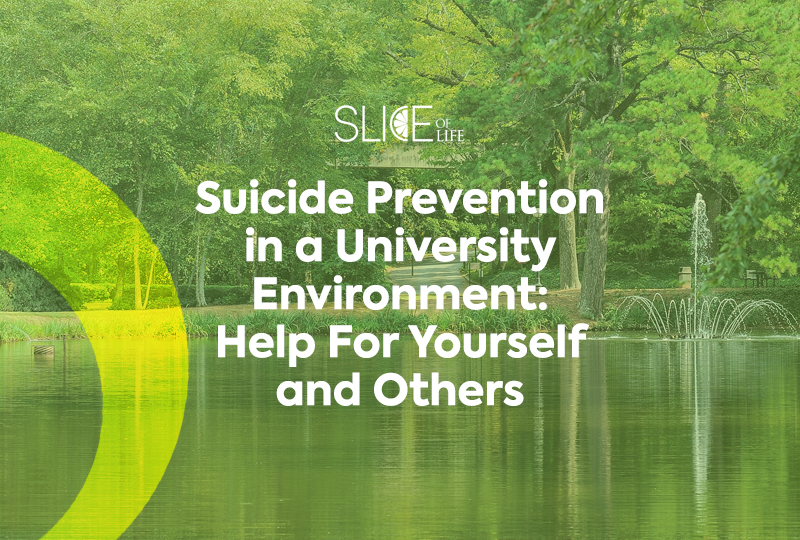College is supposed to be a fun, relatively carefree time as students work to improve themselves and face the larger world. Yet, the inherent stresses of higher education compounded with work, familial and social obligations can lead people to hidden dark places in their mind that can be extremely difficult to rise above. According to the American Foundation for the Prevention of Suicide, approximately 24,000 students attempt suicide each year. It is cited as the second-leading cause of death among college students, yet there is much that can be done to prevent this in many cases. An ever-growing acceptance about discussing mental health issues has shown a positive impact in the right direction.
Identifying Warning Signs in Yourself or Others
There are certain signs that can indicate a person might be experiencing suicidal thoughts, which can be helpful to determine if they need to be connected with assistance resources.
As outlined by the Suicide Prevention Resource Center, warning signs may include:
- Mentions of feeling in intense pain emotionally
- Feelings of hopelessness, worthlessness, guilt, shame or anger
- Expressing feeling like a burden
- A fascination around death or death themes; talking about dying on a regular basis
- Drinking more or increased drug use
- Not taking care of appearance or personal hygiene
- Isolating from friends, family or people in general
- Recent bouts of depression, anxiety or noticeable emotional distress
- Rage or recklessness
- Major sleeping or eating pattern changes
- Violent tendencies
- Victimized by violent acts
- Giving away favorite items and/or saying goodbye to friends and family in a note of finality
- Triggering events, such as a death in the family
Immediate intervention may be required when a person talks about an immediate plan or desire to harm themselves or others, or if they show signs of planning an attempt, such as searching for information online about self-harm or any other erratic behavior that creates legitimate concern for their safety.
Mental Health Resources
Life University (Life U) is committed to providing effective and meaningful counseling support to help students grow in their mental health awareness, caring for their inner well-being while they are in school and equipping them with coping strategies that will serve them later in life. Unfortunately, many people dealing with suicidal thoughts do not seek help or counseling, so having a friend that encourages them to find support can make all the difference.
For a full list of all counseling resources, visit life.edu/campus-life-pages/counseling/.
Counseling Services is located in the Guy F. Riekeman, D.C. Center for Chiropractic Education (RCCE). For an individualized response to setting up counseling support, fill out the Counseling Support section on the bottom of the Counseling Services page linked above.
Student Assistance Program (SAP)- Life University offers individual and couples counseling through the Student Assistance Program (SAP). SAP provides 24/7 availability of an off-campus counselor via phone.
Life University students can request face-to-face visits with an off-campus therapist and will be provided with six free sessions per year. In addition, students have six free coaching sessions available (telephonic), a text option for services and a dedicated Life U phone number. With the use of the dedicated phone number, students receive unlimited calls for services and immediate help from a mental health professional.
This service allows students consistent availability, including nights, weekends and/or holidays, with a licensed mental health professional outside of the University. In addition, the service can be utilized by students’ dependents, which include spouses and children. You can contact SAP directly at 866.734.5890, text 94097 and/or request support at espyr.com (password – lifeu). A Counselor can also assist you in contacting SAP.
Counseling Wellness Workshops- During each quarter, Counseling Services offers several wellness workshops to give students a chance to discuss relevant therapeutic topics in a safe space, group environment. All wellness workshops and activities are held via Zoom unless otherwise noted in the event description listed on the Counseling Services page, under the “Counseling Wellness Workshops” tab. Visit Engage.life.edu to locate Zoom links or other information for each event.
World Suicide Prevention Day is September 10, 2024, so join the Counseling staff in The Commons for more information on awareness and prevention.


Social Media